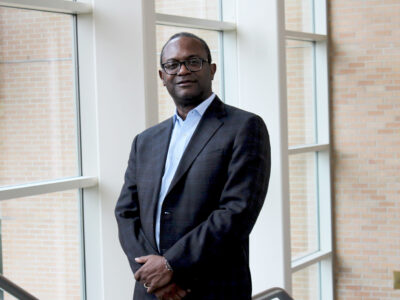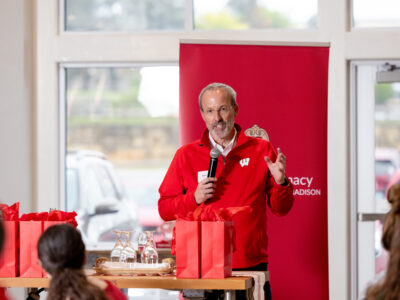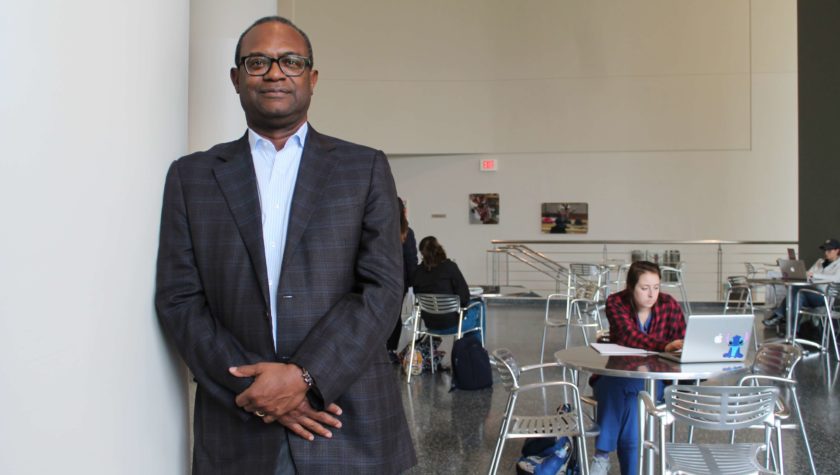
2
March

Part 2: The stories of School of Pharmacy alumni who influenced pharmacy education and practice as presidents of professional pharmacy organizations
By Katie Ginder-Vogel
As we continue our three-part series introducing the alumni leaders of some of the country’s most prestigious national pharmacy leadership organizations and their impact on the field of pharmacy, we turn our focus to alumni who have served as presidents of the national practice-based professional pharmacist organizations: the American Society of Health Systems Pharmacists (ASHP) and the American Pharmacists’ Association (APhA).
School of Pharmacy Alumni Presidents of ASHP
- 1980–81, David A. Zilz
- 1981–82, Marianne F. Ivey
- 1988–89, Philip J. Schneider
- 1989–90, Thomas Thielke
- 1994–95, Cynthia Raehl
- 1999–2000, Bruce E. Scott
- 2009–10, Lynnae Mahaney
- 2011–12, Stanley S. Kent
“UW–Madison has played a pretty big role in ASHP leadership,” says Greg Higby (MS ’80, PhD ’84), senior academic curator with the American Institute of the History of Pharmacy and senior lecturer at the School of Pharmacy. “There are 140 pharmacy schools in the country, and our graduates have been prominent ASHP leaders over the past 40 years.”
ASHP was founded on August 21, 1942 as the American Society of Hospital Pharmacists and its membership primarily included pharmacists who worked in a hospital setting. In 1995, ASHP changed its name to the American Society of Health System Pharmacists to reflect the diversification of pharmacists’ roles beyond inpatient care into ambulatory care and home care.
“It’s a very dynamic, forward-looking, progressive, active organization, with lots of loyalty among the membership,” says Higby. “Many hospital pharmacists in the country belong to ASHP and are active members.”
School of Pharmacy alumni have played a significant role in ASHP leadership over the past 40 years. “Wisconsin has had an incredible impact on the organization,” agrees George Zografi, who served as dean of the UW–Madison School of Pharmacy from 1975 to 1980.
“Wisconsin has had an incredible impact on the [ASHP] organization.” —George Zografi
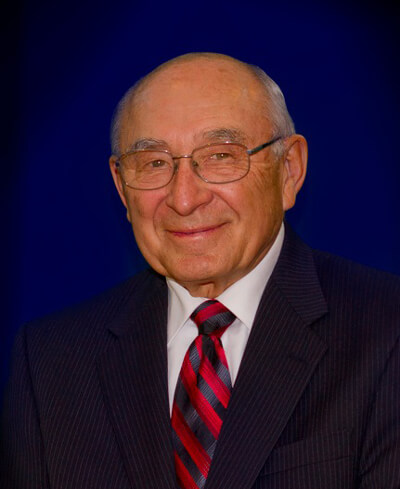
David A. Zilz (BS 1962, MS 1964) was ASHP president from 1980-1981 and then served on the ASHP board as treasurer for six years. Zilz was the Director of Pharmacy Services at the University of Wisconsin Hospital and Clinics from 1972-1983 and serves on the School of Pharmacy Board of Visitors.
“Lots of School of Pharmacy alumni were board members and ASHP officers,” says Zilz. “Many of the alumni who were presidents of ASHP got the Webb and Whitney lecture, in recognition of their influence on hospital health systems.”
Indeed, Zilz, Marianne Ivey, Philip Schneider, Tom Thielke, and Bruce Scott all received the Harvey A.K. Whitney award from ASHP, with Zilz, Ivey, Thielke, and Scott also honored with ASHP’s John W. Webb Lecture Award.
Zilz describes the multifaceted careers of many School of Pharmacy graduates.
“I recall discussions about the interconnectedness of industry and academia,” he says.
There’s something about the School that makes it easier for people to move among different areas of the pharmaceutical ecosystem.”
As ASHP president, Zilz appointed committee chairs and delegated assignments to them, so that change would come from the bottom up. His inaugural address emphasized the importance of including pharmacy technicians in the core of pharmacy practice, which he says remains an issue in the profession. Zilz credits ASHP leadership with teaching him how to think like a board member, rather than as a department head.
“I also learned the power of podium presence, to come to every meeting overprepared, and to turn off everything except conversations,” Zilz says. “The best ideas come from unexpected sources.”
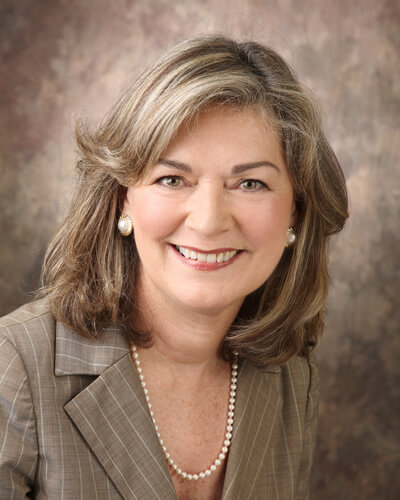
Marianne F. Ivey (BS 1967), PharmD, MPH, FASHP, is Professor Emerita at the University of Cincinnati and served as ASHP president from 1981-1982.
“Being ASHP president was a great experience,” Ivey says. “I was early in my career and excited about everything I did.”
Ivey represented a new type of ASHP leader: She was the first woman who was not a religious sister to be president. She had a family, so people could see that the role was possible with a family, and she was a clinical staff member, not a director or department head.
“Clinical pharmacy practice was just getting started then, so that was a message to people that the presidency isn’t just for people in management,” says Ivey.
Ivey remembers speaking about pharmacy’s role in bringing evidence-based data to the table as president, and like Zilz, she focused on the importance of pharmacy technicians in the workforce and how to train and utilize them to advance practice and further serve patients.
“Now, we’re making real progress,” Ivey says. “Accredited training is available for technicians; they’re incorporated into entities of ASHP; and they’re part of programming at ASHP.”
Ivey has known many of the School of Pharmacy alumni who have been ASHP presidents, including Tom Thielke and Phil Schneider, since their undergraduate years at UW–Madison.
“One of my colleagues says doing time at UW changes your DNA,” says Ivey. “You’re ready for leadership, you step up, and you realize that speaking up is important. If you have good ideas but don’t share them, it doesn’t do much good.”
Ivey was honored with the David A. Zilz leadership award presented during the Vizient, Inc Consortium Pharmacy Network Meeting, in recognition of her contributions to the network. Zilz is one of her mentors.
“Dave Zilz has been my sponsor and advocate for as long as I can remember,” she says. “My professional life has been associated with his since I was at the School of Pharmacy, working as a part-time pharmacy student, learning from a pharmacy technician at the hospital how to run the pre-pack machine.”
Ivey followed Zilz consecutively as president of ASHP.
“It was a hard act to follow,” she says. “While I worked with and around Dave, I benefitted from the infectiousness of his passion for the profession of hospital pharmacy, his boundless energy, and his relentlessly positive nature.”
“I tried to pay back Dave’s help to me by initiating a fundraising campaign at the ASHP Foundation, in honor of Dave’s leadership and his ability to look into the future for the profession,” Ivey adds. “The fund has been very successful, leading to an annual forecast report and other leadership activities sponsored by ASHP.”
As a professor emerita at the University of Cincinnati, Ivey serves as an advisor to the online Master’s Degree in Pharmacy Leadership, which she initiated, and works with pharmacy residents and new practitioners around the country through the ASHP Visiting Leader program, to encourage them to practice, educate, and do research to their full potential.
“All pharmacists who get involved with an organization see the benefit to their own careers, as well as volunteering to contribute to the profession,” says Ivey. “ASHP has a great staff, who are talented in their own right, plus volunteers who bring expertise to the table. It’s been a wonderful organization to call my professional home.”
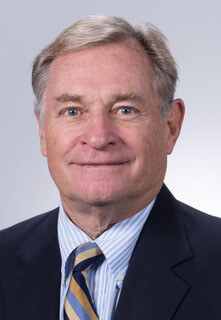
Philip J. Schneider (BS ’70), MS, Professor, College of Pharmacy, The Ohio State University, and Principal, MediHealthInsight, was ASHP president from 1988-1989, which he describes as “a year of politics and disruption.” While he knew many ASHP members were ready for change within the organization, he began by attempting to calm the waters.
“My presidential address focused on developing a common vision, creating harmony in difference, and capitalizing on change,” he says. “We steered ASHP through a difficult and challenging transition, and I feel good about that.”
Black Monday, the large stock market crash on October 19, 1987, created financial challenges for many organizations, including ASHP.
“It was a hard time to sell a dues increase, so we added to the bylaws that ASHP can raise dues based on the consumer price index and built it into the system,” says Schneider.
Schneider and his board also shepherded along a process of transitioning the Special Interest groups (SIGS) of ASHP, which were designed to address specific members’ needs, into Special Practice Groups.
“It’s more than an interest group; it’s a practice group,” Schneider explains. “Now, they’re sections and can elect their own officers, so they are organizations within ASHP. It’s a win-win, because ASHP can maintain a high level of representation for the profession on a national level, with a strong voice, and also be accountable to increasingly focused areas of practice.”
“I feel fortunate that I graduated from UW–Madison. It’s an impressive place, especially within pharmacy, and I feel like we all want to live up to and contribute to the legacy.” —Philip Schneider
Schneider thinks the UW–Madison School of Pharmacy’s legacy inspires its graduates to volunteer to give back to the pharmacy profession.
“It’s been rewarding to join other fellow UW alumni in continuing leadership,” he says. “There’s something about the place that plants seeds. I feel fortunate that I graduated from UW–Madison; it garners a great degree of respect, no matter the field. It’s an impressive place, especially within pharmacy, and I feel like we all want to live up to and contribute to the legacy.”
Schneider views leadership as a combination of hard work and surrounding yourself with good people who are supportive.
“I feel fortunate to have led a national pharmacy organization,” he says. “It was a privilege to have that opportunity.”
Schneider, Ivey, and Thielke have all been involved in the International Pharmaceutical Federation (FIP); Schneider just wrapped up 30 years of service. He received the Joseph A. Oddis award, named after his mentor, longtime ASHP CEO Joe Oddis.
“It was an honor to receive an award named after him,” says Schneider. “He took all the ASHP presidents to FIP meetings to represent ASHP. A lot of those presidents have been from the Wisconsin program.”
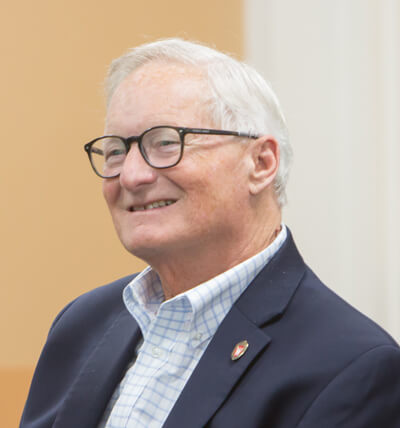
Thomas Thielke (BS ’67, MS ’69) took the reins of ASHP the year after Schneider served as president, from 1989-1990.
“Tom followed me as ASHP president and continued our effort to build camaraderie among members, the board and ASHP staff, by injecting some fun into our hard work,” says Schneider.
At the time, Thielke was the Director of Pharmacy at UW Hospital and had to get approval from the hospital’s COO to step into the presidency, because it was such a huge time commitment. Fortunately, his team at the hospital, including Associate Director Pam Ploetz, stepped in to cover him.
“It was one of the best times of my entire career, because being president of a national pharmacy organization brought prestige back to UW and to the UW Hospital,” Thielke says. “I got to see the world.”
ASHP presidents spend time at the organization’s headquarters in Washington, D.C., as well as around the world, meeting with the leaders of national pharmacists, medical, nurses, and hospital associations.
“I got to go to the international pharmacy organization meeting in Germany, got interested in it, and ended up on their board of directors and then as president,” Thielke says. “ASHP allowed that bridge.”
Thielke found that pharmacy challenges are similar around the world and could be addressed by international collaborations. He credits ASHP CEO Joe Oddis’ mentorship with expanding his vision and horizons beyond Wisconsin and D.C. Thielke chaired the ASHP Foundation Board after his presidency.
Thielke’s accomplishments as president included fundraising for the purchase of a new ASHP building in Washington, D.C., and increasing the organization’s membership by about eight percent.
“My presidential address was about reaching out beyond hospital pharmacy to medical and hospital organizations,” says Thielke. “I tried to learn what we could do for our affiliates, and in my address, I said to them, ‘If you want me to come to your state organization, I will.’”
Thielke hadn’t anticipated 30 state pharmacy organizations taking him up on his offer.
“It showed them they were important to us,” he says. “I still meet with UW Hospital pharmacy residents every month and tell them stories about that and about how important it is to get involved with organizations and work your way up. I have colleagues and friends around the world. It’s been a fabulous career I’ve been able to have.”
Thielke credits his national and international pharmacy leadership experience with his promotion to vice president of UW Hospital during the last nine years of his career.
“My leadership experience allowed me to make that jump to hospital administration,” he says. “It was a way to stay connected and give back.”
Cynthia Raehl (BS ’77) was Professor at the School of Pharmacy for 16 years, before founding the Department of Pharmacy Practice at the Texas Tech University Health Sciences Center School of Pharmacy, the first new publicly funded pharmacy school in over 50 years, in 1996. She served as ASHP president from 1994-1995, just as the PharmD degree was approved by the AACP.

“The opportunity to then help UW start planning for the entry-level PharmD degree stimulated deep reflection on developing a ‘practice ready’ graduate, although that terminology would not emerge until decades later,” recalls Raehl.
Raehl served as ASHP president while practicing as a clinical pharmacist at the Madison Veterans Hospital, which she says reflected the shifts within academic pharmacy, pharmacy practice, and organizational pharmacy leadership.
“Clinical pharmacy was here to stay,” she says.
The year after Raehl’s presidency, in 1996, ACPE released a third version of its accreditation standards for the entry-level PharmD program, Board of Pharmacy Specialties (BPS) implemented standards for oncology residency training, and ASHP launched its Clinical Skills competition.
“Creation of the ASHP Student Forum during this time frame required vigorous personal advocacy at both the ASHP board level and within the state chapter network,” Raehl says.
Also in 1996, Raehl joined the faculty at Texas Tech.
“The experiences of serving ASHP and WSHP as a presidential officer, along with serving on the UW faculty, prepared me well for subsequent richly rewarding career adventures,” says Raehl. “Eventually, I served as AACP President again, leading a national pharmacy organization bolstered by the experiences and insights afforded through my roots in Badger pharmacy.”
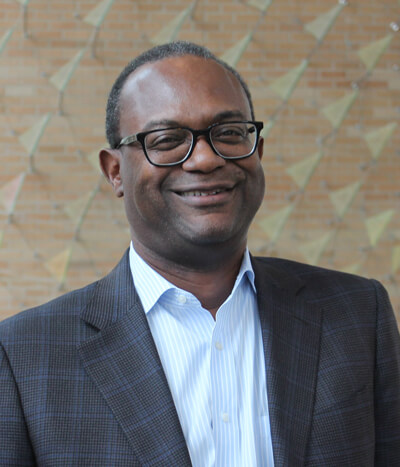
Bruce E. Scott (BS ’79), who retired in November 2018 as President of EnvisionPharmacies, after a successful career that spanned hospital pharmacy and administration and industry leadership, serves on the School of Pharmacy’s Board of Visitors. He was ASHP president from 1999-2000, when, he says, medication safety was at the forefront of pharmacy.
“As an organization, ASHP promoted systematic improvements to medication safety, including safety around chemotherapy dosing and the prescribing of chemotherapy agents, and enhanced protocols in checking and verifying medication doses,” Scott says. “We promoted pharmacists’ roles in policymaking on safety, within hospitals.”
Scott says the practice of pharmacy at UW influenced his practice philosophy.
“In addition to the foundation I got there, I had a number of mentors at UW who were extremely supportive and instrumental in my success: David Zilz, Tom Thielke, and Pam Ploetz,” says Scott. “UW–Madison is a great pharmacy school that provides you the knowledge you need and goes further than that—the faculty care about students and want to provide them a bigger view of the practice opportunities and ways to make an impact in healthcare.”
Scott emphasizes the importance of ASHP to the pharmacy profession.
“It’s the voice of pharmacists practicing in health systems, and that’s a unique voice, practice, and need within the profession,” says Scott. “All practice settings are important, and ASHP addresses the specific needs of health systems.”
“UW–Madison is a great pharmacy school that provides you the knowledge you need and goes further than that—the faculty care about students and want to provide them a bigger view of the practice opportunities and ways to make an impact in healthcare.” —Bruce Scott
Scott says serving in a professional organization like ASHP has helped his career.
“It has been invaluable to me as a pharmacist,” he says. “As a young pharmacist, I didn’t really understand the impact of public policy, and ASHP helped me understand that.”
Scott says being ASHP president taught him how to manage meetings and committees and to lead through influence. He says the professional network he has formed through ASHP has been valuable throughout his career.
“Being able to ask someone a question, or for help, on an issue you know they’ve dealt with, is so valuable,” he says. “Also, I first traveled internationally through ASHP. ASHP has returned so much more to me than I feel that I gave.”
Lynnae Mahaney (BS ’82), now the Director of Pharmacy Accreditation at ASHP, was the organization’s president from 2009-2010. To get on the slate for president, volunteers are expected to serve at the state level and within ASHP, which also serves to prepare them for the role of president.
“You have to develop a knowledge base about your profession,” says Mahaney. “I also thought long and hard about whether I wanted to take on the commitment of the presidency, personally and from a work standpoint. I knew I’d be away many months of the year of each three-year term, but this was the chance of a lifetime. My family and the VA, where I was Chief of Pharmacy, were on board, and everything I experienced provided personal and professional growth, as well as the opportunity to contribute to the profession on a broad scale.”
Mahaney says she got 1,000 times more out of it than she put in, including friends and mentors.
“For example, when I started running the Center for Pharmacy Practice Accreditation, I had formed good relationships across the entire profession, not just in our hospital and health system pharmacy, because in ASHP, I’d had the opportunity to talk with pharmacists in all walks of life across the U.S. and the world,” she says. “I also discovered how much I loved the international involvement. My current role in ASHP includes a lot of international work. I’ve been able to get more involved internationally, as a result of my years as ASHP President.”
Mahaney focused her presidency on practice advancement and technician advancement and celebrated the 2010 ASHP launch of a pharmacy practice model initiative (PPMI), now the practice advancement initiative (PAI).
“Wisconsin pharmacy has always been on the leading edge of promoting and advancing pharmacy, especially hospital pharmacy.” —Lynnae Mahaney
Mahaney says ASHP’s greatest strength is that the organization can offer national representation to a large number of pharmacists who work with patients every day.
“All those brilliant pharmacists and technicians who work with patients every day—ASHP taps them, and they help facilitate ASHP accomplishments for the membership,” she says.
Mahaney says her interaction with School of Pharmacy faculty and classmates motivated her to join the Pharmacy Society of Wisconsin (PSW)—and later, ASHP—and reignited an interest in leadership she’d had in high school but taken a break from as an undergraduate.
“The School of Pharmacy is very connected to pharmacy in Wisconsin—it’s one and the same,” she says. “There have been so many prominent Wisconsin pharmacists who have held volunteer leadership positions in ASHP. Wisconsin pharmacy has always been on the leading edge of promoting and advancing pharmacy, especially hospital pharmacy.”
Mahaney didn’t find ASHP until she was in her late twenties and became completely hooked.
“That was the professional place I wanted to be and start to stretch myself,” she says. “At that time, I was getting into leadership positions from a work standpoint and state association leadership, so it was good timing. ASHP has been my professional home throughout my career.”
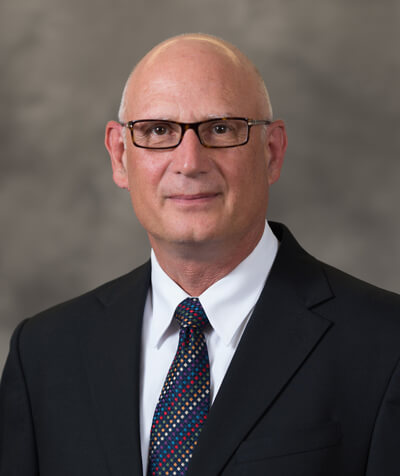
Stanley S. Kent (MS ’80), Associate Dean for Clinical Affairs and Clinical Assistant Professor of Pharmacy at the University of Michigan College of Pharmacy and Chief Pharmacy Officer of Michigan Medicine, was ASHP president from 2011-2012.
“It was quite an honor to be elected president of our national organization,” says Kent. “I never thought for a minute when I was in school that I would end up in such a position. It goes to show you that you never know where life will take you—just work hard, help others, and always treat everyone with respect, and it will take you far.”
Kent says his major accomplishment as president was launching the pharmacy practice model initiative (PPMI), now the practice advancement initiative (PAI).
“We realized as a board of directors that practice in health systems had advanced quite a bit over the past 30 years, but there was more opportunity, and to do so would require some sort of inspirational push,” says Kent. “So we planned the PPMI summit, and eventually, I think it helped raise practice around the country.”
Kent says he appreciates the position he was in to effect changes in national practice standards and set the direction for the profession as ASHP president.
Lynnae Mahaney says she and Kent had a great working relationship at ASHP.
“I learned so much from his approach and how he thinks,” she says. “He’s extremely thoughtful and jumps outside the box easily.”
School of Pharmacy Alumni Presidents of the American Pharmacists Association (APhA)
- 1939–40, Andrew G. DuMez
- 1949–50, Glenn Jenkins
- 1957–58, Joseph B. Burt
- 1971–72, Lloyd Parks
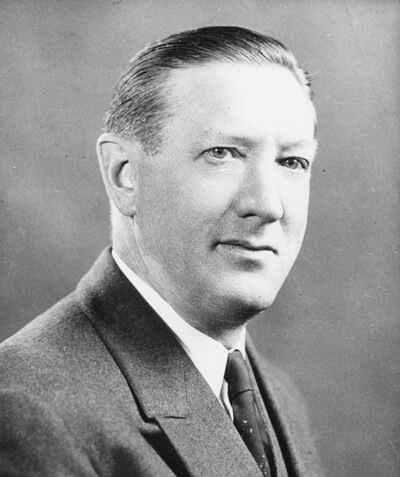
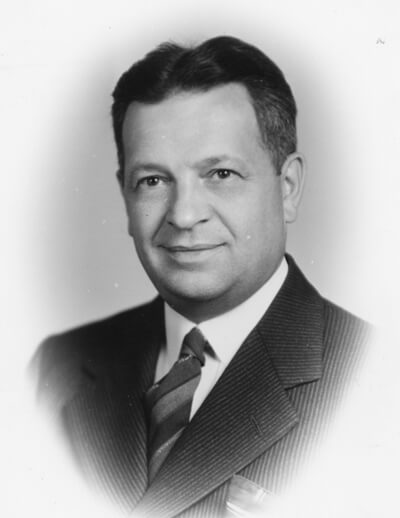
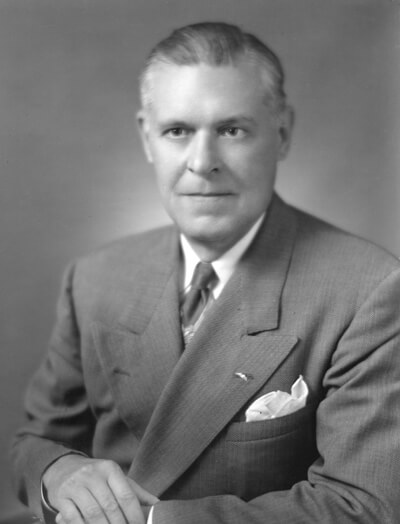
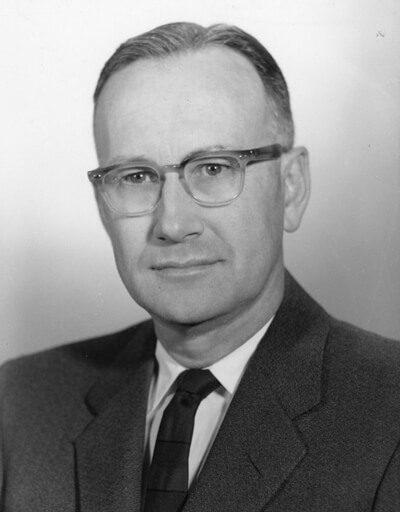
The American Pharmacists Association was founded on October 6, 1852 as the American Pharmaceutical Organization, the first national organization of pharmacists. Today, APhA is the largest association of pharmacists in the U.S. and is headquartered on the National Mall in Washington, D.C.
“They’re like the AMA of pharmacy,” says Higby. “There was a time when to join ASHP, you had to join APhA.”
In 2002, the organization changed its name to the American Pharmacists Association to reflect the fact that it is the umbrella organization for all the pharmacists in the U.S.
“The APhA is active with students of pharmacy and pharmacists who work in federal government, and pharmacists who work in other organizations,” says Higby. “State pharmacy associations have relationships with APhA, as do rank and file pharmacists. Their membership number is similar to ASHP’s.”
So it’s fitting then that the four UW–Madison alumni who were presidents of APhA were also all presidents of the American Association of Colleges of Pharmacy (AACP) and deans of pharmacy schools.
Andrew DuMez (PhD ‘17), the first graduate of the School’s PhD program in pharmaceutical science and the first-ever recipient of a PhD in pharmaceutical science, became dean of the University of Maryland School of Pharmacy, which continues to honor him through a lecture series. He served as APhA president from 1939-1940.
Glenn Jenkins (BS ’22) was dean of Purdue University College of Pharmacy for 25 years, where he expanded pharmaceutical research and expanded Purdue’s undergraduate and graduate programs. He was APhA president from 1949-1950.
Joseph Burt (MS ’27), APhA president from 1957-1958, and Lloyd Parks (PhD ’38), APhA president from 1971-1972, are both known for their contributions to pharmaceutical science.
Parks, who was also president of the Rho Chi honor society, served on the faculty of the UW–Madison School of Pharmacy for 18 years, before joining the faculty of The Ohio State University College of Pharmacy in 1956. He became dean of the college and retired in 1977.
Phil Schneider remembers Parks from his graduate student years at Ohio State.
“We had an instant bond from our shared experience at UW–Madison,” says Schneider. “Lloyd saw the need for a premier pharmacy department at the Ohio State University Hospital and supported the establishment of Master’s residency program that has been incredibly successful. That program and Wisconsin’s program have made a significant impact on hospital pharmacy.”
DuMez, Jenkins, and Parks also received the Remington Honor Medal from APhA, which was established in 1918 to recognize distinguished service on behalf of American pharmacy. Considered the highest award in American Pharmacy, the Remington Medal is named for the eminent community pharmacist, manufacturer, and educator Joseph P. Remington (1847-1918). DuMez received the award in 1948, Jenkins in 1963, and Parks in 1974.


